Follow the Advocate on Twitter @GSA_Advocate
Closure of open-net BC salmon farms ignores science and Indigenous rights, says aquaculture sector
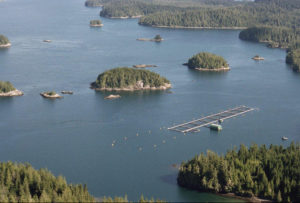
The Department of Fisheries and Oceans Canada (DFO) has confirmed its commitment to the close of all salmon farms in the core territories of the Laich-kwil-tach and Klahoose First Nations – a region that the Government of Canada calls the Discovery Islands in British Columbia (BC). On February 17, 2023, Fisheries Minister Joyce Murray announced that the federal government will not renew licenses for open-net BC salmon farms in the territory.
“The state of wild Pacific salmon is dire, and we must do what we can to ensure their survival. This was a difficult but necessary decision,” said Murray. “By taking an enhanced precautionary approach in the Discovery Islands area, the Government of Canada will help ensure the well-being of wild Pacific salmon for our children and grandchildren.”
In April 2022, a federal court ruling that reaffirmed conclusions from nine peer-reviewed reports that salmon aquaculture in BC poses “no more than a minimal risk of harm to the Fraser River Sockeye salmon. Moreover, a recent scientific report from the Government of Canada has concluded that sea lice on farmed salmon do not impact sea lice levels on wild juvenile salmon in British Columbia. However, the DFO claims that recent science indicates that there is “uncertainty” with respect to the risks posed by Atlantic salmon aquaculture farms to wild Pacific salmon in the Discovery Islands area, as well as to the cumulative effect of any farm-related impacts on this iconic species.
The DFO also cited “multiple stressors on wild salmon” – such as climate change, habitat degradation and destruction, regulated fishing as well as illegal, unreported and unregulated fishing – which has led the government to take “a highly precautionary approach to manage Atlantic salmon aquaculture” in the region.
The BC Salmon Farmers Association and the Coalition of First Nations for Finfish Stewardship have condemned the closure, calling it “a devastating decision” that ignores scientific evidence as well as Indigenous rights and title.
“The decision to not issue salmon farms in the Discovery Islands area is devastating for all coastal communities who rely on the aquaculture sector,” Brian Kingzett, executive director of the BC Salmon Farmers Association, said in a press release. “Local communities have been hurting since the decision to remove the farms was announced in 2020, and thanks to this willfully uninformed decision announced earlier today, these communities will continue to experience negative socio-economic impacts of an outcome that was based on politics rather than science.”
“Today’s decision, unfortunately, feels beyond procedural unfairness after many months of meetings with the Minister, her department, and DFO staff,” Dallas Smith, spokesperson for the coalition, said in a press release. “The Wei Wai Kum and We Wai Kai First Nations sent a thoughtful proposal to DFO in November to re-issue some licenses in their core territories. They put forward a cautionary approach to explore how and if finfish farming could be part of their Nations’ overall vision to manage their marine space. This decision to deny all licenses in their territories has sent the Nations back to the drawing board in that regard.”
The proposal described a careful, staggered plan for the possible re-introduction of some fish farms in Laich-kwil-tach waters to be led and overseen by the Nations and their stewardship programs. These sites would have operated in partnership with Mowi Canada West, Cermaq Canada and Grieg Seafood BC.
Some First Nations are asserting their right to farm salmon, despite pending government closures
Smith said the salmon farms would have served as “a critical piece” to help the Nations’ advance their holistic marine management plans, including growing their Guardian and stewardship programs; enhancing their science capacity using traditional knowledge and Western science; improving wild salmon conservation efforts; and playing a leadership role in the area’s local seafood production.
“This was not about protecting the sector or the companies operating in it – this was about the sovereignty of the Laich-kwil-tach Nations and their right to decide for themselves whether salmon farming, or any other resource, is the right fit for their marine plans,” said Smith. “Unfortunately, the decision was once again taken away from them by a government located 5,000 kilometers away from their territories.”
Mowi Canada West also expressed its disappointment, calling it “a further blow to BC’s largest agricultural export and for all of the coastal British Columbia communities that rely on salmon farming as a primary economic driver.” The company is now reviewing the decision and considering its legal options.
“This decision, along with previous decisions, continues to raise serious questions about Canada’s commitment to First Nations reconciliation, its food producers and the health of coastal communities,” said Dr. Diane Morrison, Managing Director at Mowi Canada West. “Our company, along with the Wei Wai Kum and We Wai Kai First Nations had provided the Minister a very reasonable path forward that would help Canada achieve its stated vision for sustainable aquaculture and advance its Blue Economy Strategy. She has regrettably chosen not to accept this opportunity.”
Now that you've reached the end of the article ...
… please consider supporting GSA’s mission to advance responsible seafood practices through education, advocacy and third-party assurances. The Advocate aims to document the evolution of responsible seafood practices and share the expansive knowledge of our vast network of contributors.
By becoming a Global Seafood Alliance member, you’re ensuring that all of the pre-competitive work we do through member benefits, resources and events can continue. Individual membership costs just $50 a year.
Not a GSA member? Join us.
Author
-
Lisa Jackson
Associate Editor Lisa Jackson is a writer who lives on the lands of the Anishinaabe and Haudenosaunee nations in Dish with One Spoon territory and covers a range of food and environmental issues. Her work has been featured in Al Jazeera News, The Globe & Mail and The Toronto Star.
Tagged With
Related Posts
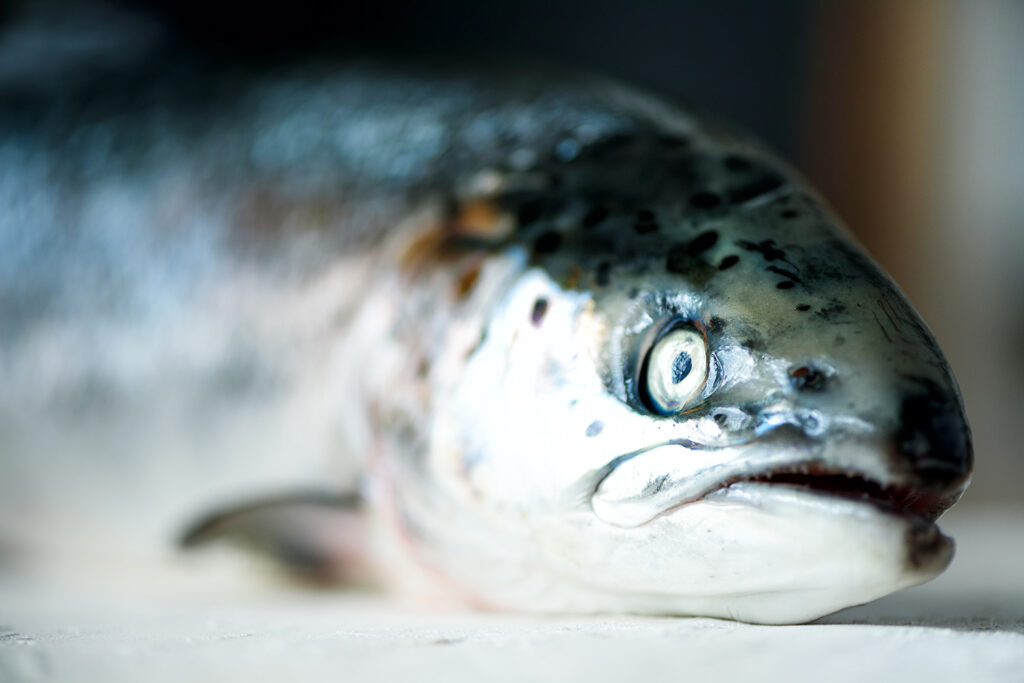
Intelligence
Canadians largely support ocean-based salmon farming, yet farms are being shut down
Amid a dizzying landscape of passions and politics, a recent survey showed the confusing messages Canadians are getting about salmon farming.
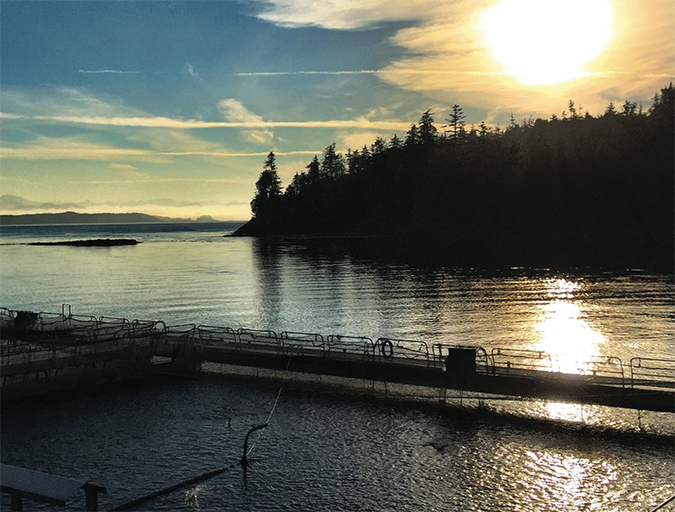
Intelligence
Report: Moving BC salmon farms to land may not be economically viable
Regulatory uncertainty, high capital cost, low ROI and few incentives were identified as hurdles to moving BC salmon farms onto land.
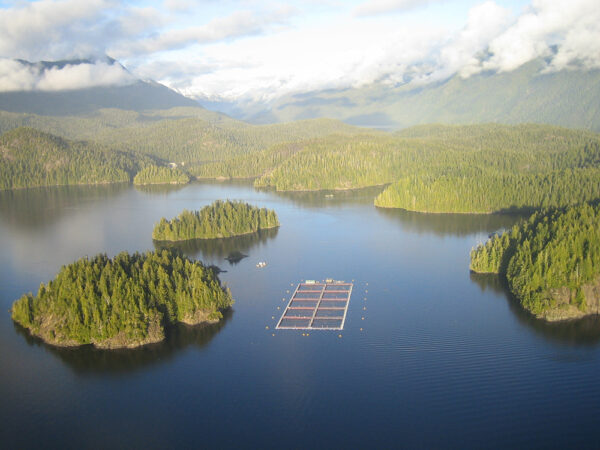
Responsibility
Leading scientists defend Canada’s peer-reviewed science advisory process on salmon farming
Nine top scientists are publicly defending the science and advice presented on salmon farming by the Canadian Science Advisory Secretariat.
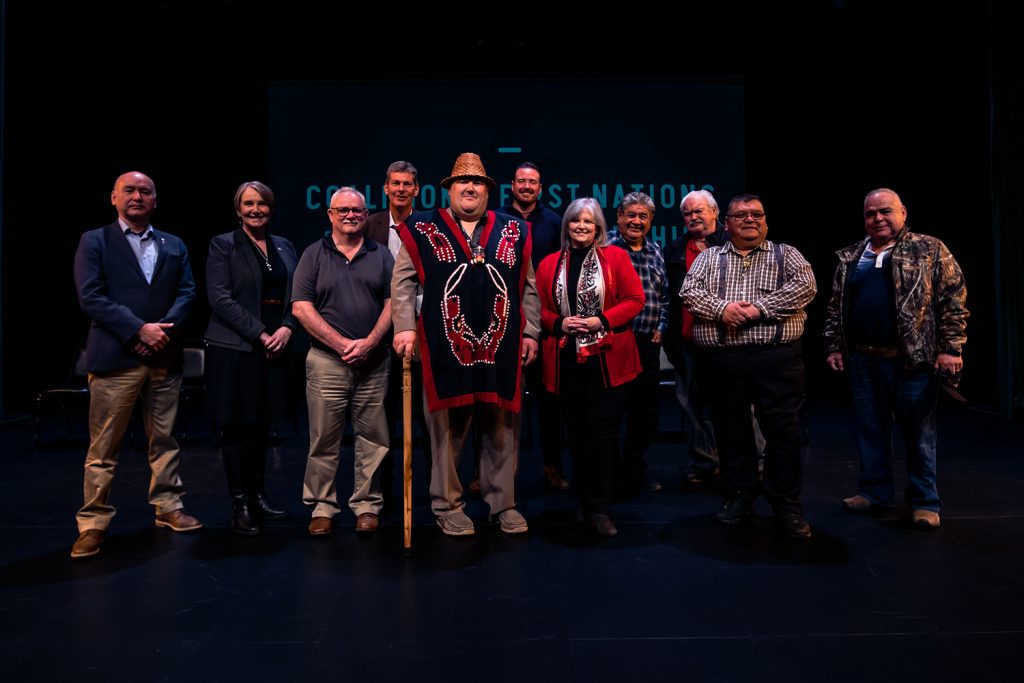
Responsibility
Some First Nations are asserting their right to farm salmon, despite pending government closures
With salmon farm closures imminent, some First Nations are taking action to preserve ocean-based farming and assert Indigenous sovereignty.



